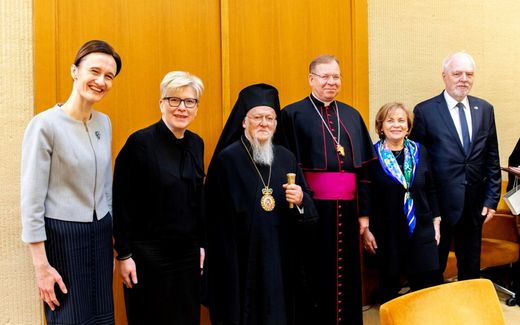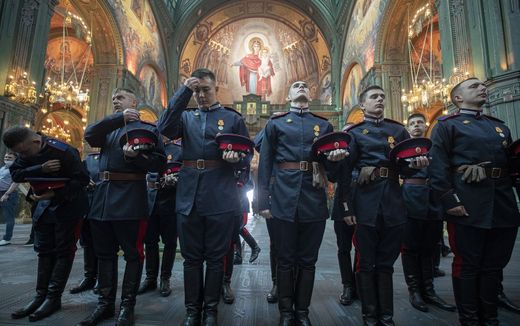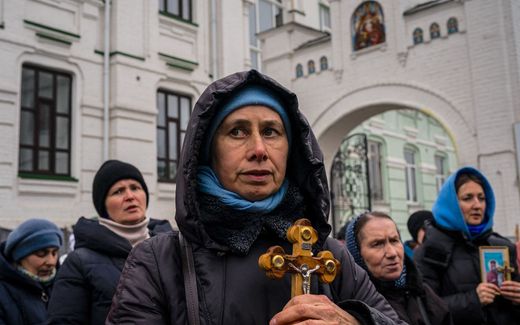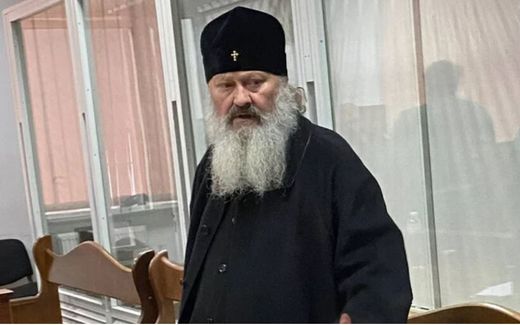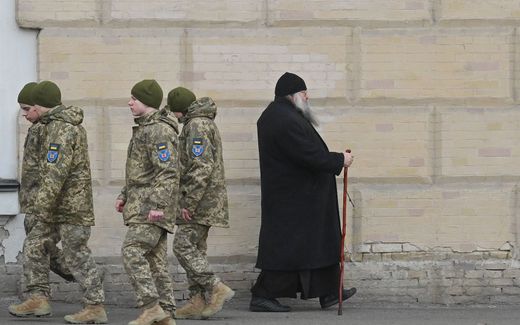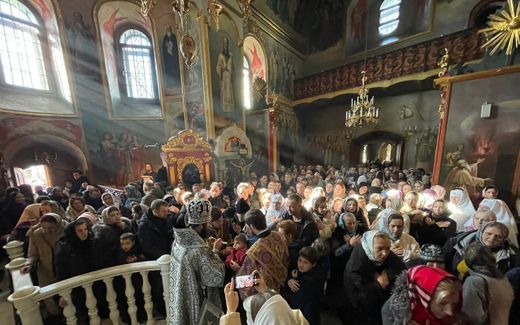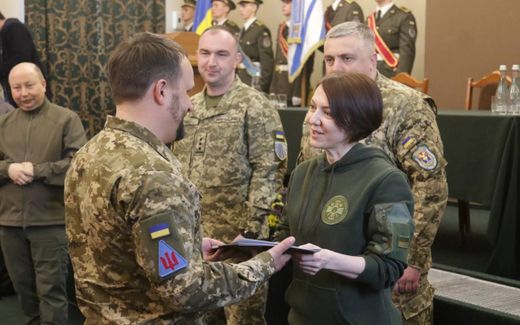Ukraine Council of Churches supports ban on Russia-affiliated church
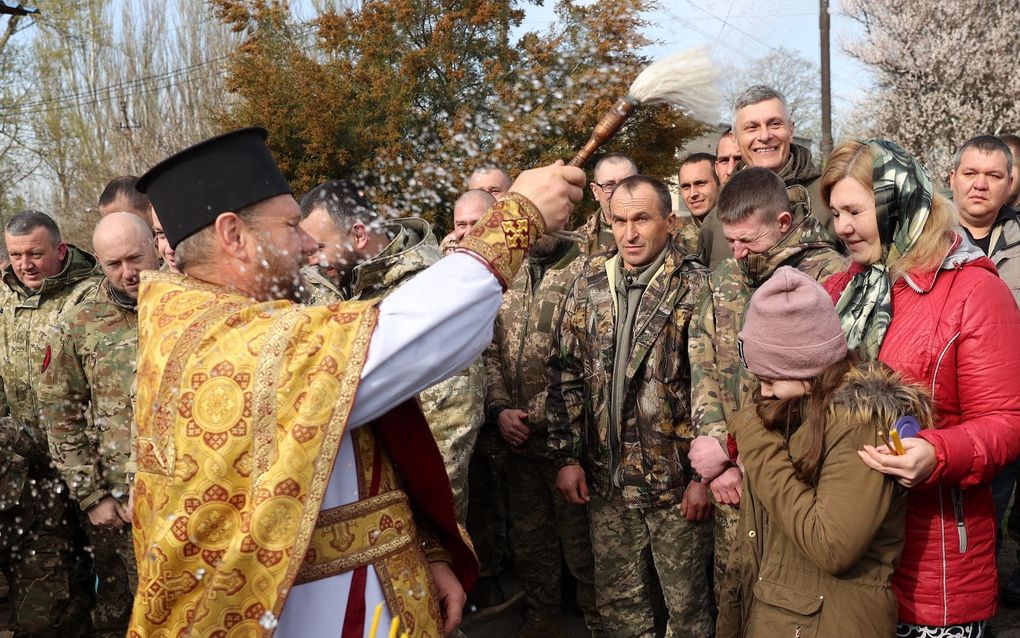
A Ukrainian priest blesses people at the Orthodox Easter, last Sunday. Photo AFP, Anatolii Stepanov
Eastern Europe
The All-Ukrainian Council of Churches and Religious Organisations (AUCCRO) will support if the parliament poses a ban on a church with ties to Russia.
That is reported by several media, like the portal inVictory. Last week, the Speaker of the Verkhovna Rada (parliament), Ruslan Stefanchuk, met with the (AUCCRO). At that meeting, state-church relations were discussed in the context of the Russian war.
That has direct consequences for the traditional Orthodox community in the country, the Ukrainian Orthodox Church (UOC). That church is affiliated with the Moscow Patriarchate (MP) in Russia. Although the church tried to break this connection officially, it is still there since Moscow has not recognised this decision.
The church is in full support of the sovereignty of Ukraine. However, the formal connection on paper is still a source of suspicion. According to a new opinion poll reported by The New Voice of Ukraine, 70 per cent of the Ukrainian population supports a ban on the activities of the Ukrainian Orthodox Church in the country.
Equality
In a statement, AUCCRO spoke about the “the inadmissibility of activities” of organisations with leadership in Russia, “the inevitability of punishment” for all helpers of the enemy, regardless of what confession they belong to, and the “equality before the law”.
The participants at the meeting also spoke about the Kyiv Pechersk Lavra, the world-famous monastery in the capital. Traditionally, this was the monastery of the UOC, although the state is the owner. The Ukrainian government has ended the rental contract and demands the UOC monks to leave the complex. The rivalling Orthodox Church of Ukraine (OCU) now uses some of the chapels for liturgies.
Regarding the Lavra issue, the AUCCRO says that the state primarily protects the interests of Ukraine and the Ukrainian people. The meeting participants also noted that Ukraine is known worldwide for religious freedom, religious pluralism, the absence of a “state church”, and the equality of all religious organisations before the law. In the particular case around the UOC and the OCU, the state seems to favour the OCU.
The AUCCRO consists of 16 churches, of which the UOC is one.
Violence
Since the war, many parishes have transferred from the (old) UOC to the (new) OCU, reports RISU. The OCU was formed in 2019 under the influence of then-President Poroshenko. He wanted to have a church that was independent of Russia. The OCU has an affiliation with the Patriarchate of Constantinople.
How many parishes have stepped over since the Russian invasion of Ukraine is unclear. Because of that, it is not clear which Orthodox community is the largest at the moment. Officially, the UOC still has 12,000 parishes and the OCU 7,000. The teaching and liturgy are the same in both churches. The main difference is that the OCU has Ukrainian as the primary language; the UOC also uses Russian.
In the past few months, it also happened that OCU campaigners tried to get control over the local church. In some places, this has led to violence.
Security
The connection between politics and the church, as it functions now in Ukraine, is not exceptional. This weekend, the retired General Victory Yahun, a former officer of Ukraine’s security service, said in an interview that the Soviet governments used the Orthodox Churches for intelligence and subversive activities in other countries for decades. “They began actively using it from the 50s-60s when the Russian Orthodox Church entered international structures – economic ones, related to the struggle for peace, and global religious organisations,” said Yahun, according to The New Voice of Ukraine.
According to Yahun, this continued after the collapse of the Soviet Union.
Related Articles


